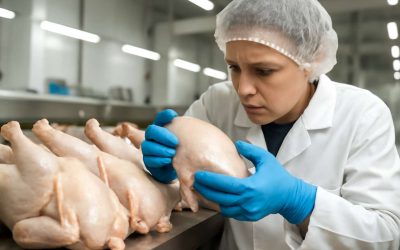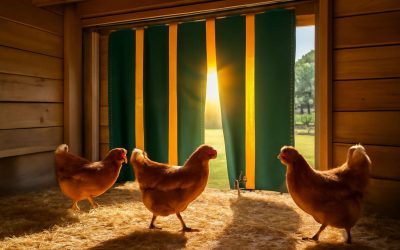
If you’re interested in hatching chicken eggs, there are several options available. Some of them are fairly basic and will only hold 7 eggs, while others are more advanced and can handle up to 56 eggs at a time.
Egg Incubators that are more sophisticated take a lot of the guesswork out of incubating your eggs, and make it much easier to maintain consistent temperature and humidity levels. These types of incubators are often more expensive than their basic counterparts, but can be well worth the extra expense if you’re looking to hatch more than a few chicks at once.
Temperature: The temperature of the eggs must be maintained at an optimum 99.5 degrees during the incubation period. Just one degree higher or lower can have a major impact on how well the embryo develops and how quickly the chicks hatch.
Humidity: The humidity in the eggs must be maintained at a low, but still high enough, level to keep the embryos moist and healthy. This requires the humidifier to be properly functioning and adding water as needed to stay at the correct level.
Ventilation: The eggs must have unobstructed ventilation holes or vents to allow oxygen and carbon dioxide to flow into the shell and escape from it. These air vents must be open during the first 17 days of incubation and gradually closed as the eggs begin to hatch.
Choosing the right eggs:
The ideal egg for incubating is a hard-boiled egg. It should be free from any dirt, fecal matter and it should have no obvious defects. It should also be large and normal shaped (no elongated, spherical or undulated eggs).
A good way to test for fertility is by candling the eggs. If you can see a small dark spot inside the egg with blood vessels radiating from it, the embryo is fertile. If you cannot see this, the egg is not fertile and should be discarded.
When incubating eggs, you should turn the egg every hour for the first 18 days. This helps the embryo to get a good place to rest, and keeps it from bouncing off the sides of the shell.
There are many egg incubators available that have an automatic turner that makes it easy to rotate the eggs. These will help keep the yolk centered in the middle of the egg rather than sticking to the sides.
These incubators can be programmed to rotate the eggs at set intervals, so you don’t have to worry about doing it manually each day. It also helps to minimize the fluctuations in temperature and humidity that can occur with manual turning, which can result in accidental egg trauma.
Some incubators have an additional battery backup, so that if the main power goes out the device will automatically run off a battery to ensure consistent temperatures and humidity levels are maintained. Some of these incubators also have an alarm system that will let you know when the eggs are ready to hatch. This is especially useful for quail and duck eggs, which require more careful handling than standard chicken eggs.



0 Comments